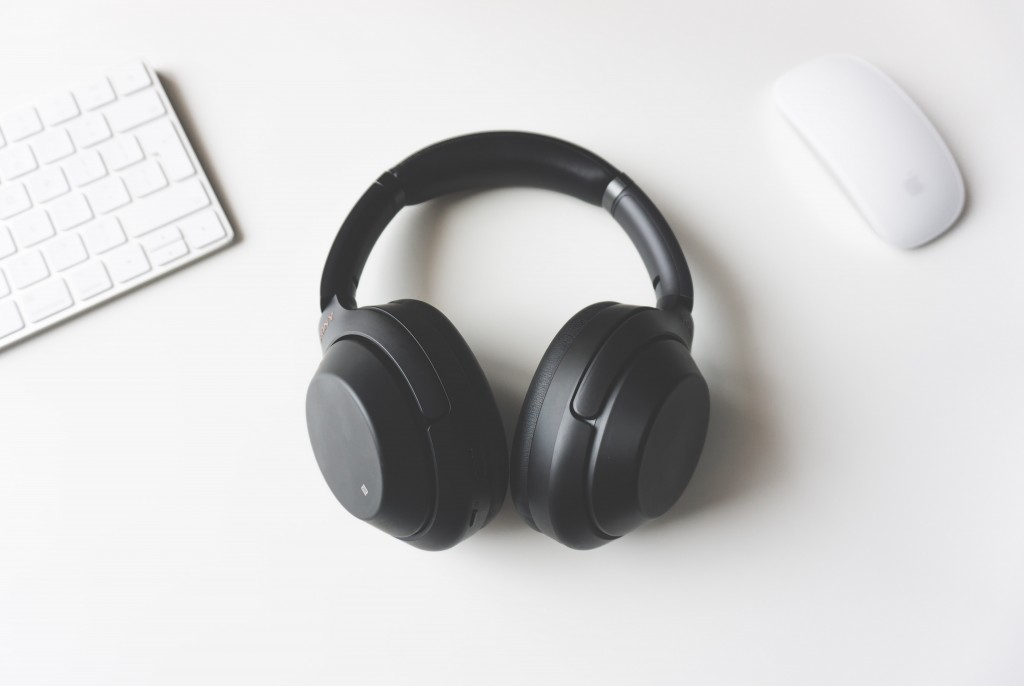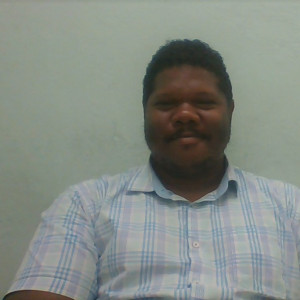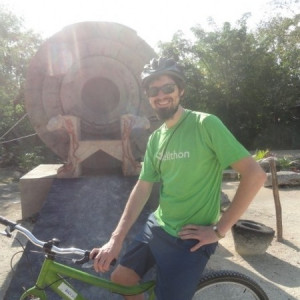How do you stay on task?
Interview with Celine, a VP of People Ops and remote team member
Being remote did not change the way I work. Not at all.
I know what I have to do, and I organize myself accordingly. Working from an office or being home did not change a thing.
Being remote means you need not be shy in asking questions and being autonomous on your role.
Celine has experienced the highs and lows of working with remote and hybrid teams—see her tips for thriving as a member of a remote team.
Read full interview from Interview with Celine, a VP of People Ops and remote team member.
Interview with Sarah Archer, a content marketing manager & remote work techie
I create weekly goals at the beginning of the week and circulate them with the team. That keeps me accountable for what I need to accomplish on a weekly basis.
Then, I personally break down what I’m going to tackle each day.
Once I’m in the right mindset, I set goals on a daily basis so I don’t feel overwhelmed by the amount of tasks I need to complete by the end of the week.
From noise-canceling headphones to Basecamp—content marketer Sarah shares her must-have remote work tools & essential productivity tips.
Read full interview from Interview with Sarah Archer, a content marketing manager & remote work techie.
Interview with Alyssa, a copywriter and content strategist
I use time blocking to make sure I'm staying focused on my most critical tasks. If I'm writing or editing, I'll listen to instrumental music. If I'm doing lighter work like marketing or admin, I'll listen to podcasts. I always like to have something to listen to.
“Life seems to go on without effort when I am filled with music.” ― George Eliot
Alyssa has found her rhythm as a freelancer and founder of the blog, Freelancing Flow—see her tips for keeping it all running smoothly.
Read full interview from Interview with Alyssa, a copywriter and content strategist .
Interview with Vernon, a freelance technical writer
As I've mentioned before, and I don't mind repeating it, as a freelancer and remote worker lists are your best tool. When building a list, you can organize your entire work schedule for the whole project or the foreseeable future.
You can come up with contingency plans and alternatives long before they become necessary, and if they become required, you can minimize panic and worry because you'll already know what to do should anything go wrong.
Taking your lists further, you can attach deadlines to each list item, essentially turning your list into a schedule. This will help you by forcing you to manage your time and also requiring you to prioritize your tasks as there is never enough time to do everything. By implementing a schedule, you'll find that you get a lot more work done in a lot less time with a lot less stress.
Having said that, another simple tool that keeps me on track is the humble alarm clock. Not just any alarm clock mind you, but specifically the alarm clock on my phone. I label the alarms on my phone for specific purposes, be it waking up and getting out of bed or a reminder to complete some errand.
When I am working, however, I try to take frequent breaks to avoid burnout. For this, I have a Pomodoro Timer. I set it for a very short work period when I start working in the morning and extend it once my mind starts to get into the groove.
Vernon is a freelance software technical writer that uses lists to organize his hectic freelance schedule—see how he maximizes his time throughout the workday.
Read full interview from Interview with Vernon, a freelance technical writer .
Interview with Kati, a co-founder shares her tips for juggling multiple side hustles
I have a To-Do list. It's a notebook that I keep with me at all times. If I don't have it, I email myself a "To Do" to add to it when I get back.
I am intrinsically motivated to succeed and get things done.
If I didn't have the To-Do list, I would have a ton of half-finished projects and never get anything finished.
I also allow myself breaks as needed. If I am overly tired, I can take a quick nap. If I can't focus, I can take a walk or watch a movie.
Kati has made a career at using the internet and gig economy to her advantage—see how she successfully manages multiple side hustles and a business.
Read full interview from Interview with Kati, a co-founder shares her tips for juggling multiple side hustles.
Interview with Laurent, an introverted remote worker & engineer
I am an introvert, so meetings are draining to me. Because of that, I initially wanted to have them spread out in my schedule as much as possible.
But I came to realize that I was more productive whenever I had big blocks without meetings.
Now I am trying to pack all my meetings back to back as much as possible in the day. So I end up having a block of meetings, and a block of no meetings. I still feel exhausted after that block of meetings, but I end up being more productive after that since I get a lot of uninterrupted time.
We’re also pushing as much as possible toward an asynchronous communication culture, so nobody feels pressured to respond to chat messages immediately.
That’s one reason we have been using Twist (instead of Slack or Microsoft Teams or others), the notifications control you have are really great. This really helps with staying focused on the task at hand. I can decide to check Twist only when it’s a natural break in my current work.
In this interview, this VP of engineering shares his strategies for managing family time and organizing meetings as an introvert.
Read full interview from Interview with Laurent, an introverted remote worker & engineer.
Interview with Phil Strazzulla, an entrepreneur enjoying the health benefits of remote work
Sometimes I'll use FocusMate and do 50 min sessions with other remote workers. Other times I'll just set a goal to have a few things done by the end of the day. I find in the mornings and evenings I can be very on point, and so try to book calls and meetings for the afternoons.
A curiosity for remote work led Phil to make it a primary work arrangement. Hear how it has helped to improve his health and impacted his approach to rest.
Read full interview from Interview with Phil Strazzulla, an entrepreneur enjoying the health benefits of remote work.
Interview with Danielle, an author who found the benefits of coworking
Creating a to-do list in Trello. It's the ONLY way I can prioritize and stay on task. Also, Spotify! Depending on the task, if I need concentration, I will listen to music, and if I need further concentration, I will listen to the white noise playlists they have. It really helps tune everything out.
If not Spotify, I will take the distraction as a sign that I need to take a break and will take a 15-minute walk or something to clear my head and re-focus.
Danielle's remote work journey led her to become an author—see how coworking with other remote workers and digital tools have helped her to fulfill her passion.
Read full interview from Interview with Danielle, an author who found the benefits of coworking.
Interview with Mike, a business developer with a one task a day remote work routine
We only focus on one task each day. Sometimes two, if they are smaller, but one of them always has a higher priority than the other.
What’s important here is that we rarely have tasks with conflicting priorities. It really helps, as it’s much easier to stay on track if you’re not distracted by other tasks with the same level of importance.
Mike had a lackluster experience with remote work 12 years ago. Today, he has embraced location-independence. Hear about his "one task a day" routine & vital tip for job seekers.
Read full interview from Interview with Mike, a business developer with a one task a day remote work routine.
Interview with Mindi, a content manager and social media strategist
I use a system based on The ONE Thing to keep myself on task. Every week, I review my priorities and map out the most important tasks to get done that align with my quarterly and annual goals.
Every day, I review my priorities for the week in a spreadsheet (like this one) where I meticulously track my progress on those most important tasks.
I believe in time blocking my calendar with the tasks that matter most, but it's all too easy for other priorities to slip into those slots.
I've discovered that taking a more flexible approach to scheduling tasks and due dates flows better for me than trying to be rigid when something pops up.
In running a household with three kids and a partner, it's critical that I can manage all those responsibilities in addition to what I do as a remote worker.
When I start getting fatigued with work, I will transition to doing some food prep or house cleaning. A little time away from the screen allows me to focus with a fresh brain when I come back to the computer.
A ten-dollar per hour social media gig got Mindi hooked onto remote work—see how she meets her client and business goals and manages time zone differences.
Read full interview from Interview with Mindi, a content manager and social media strategist .










